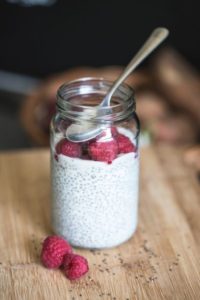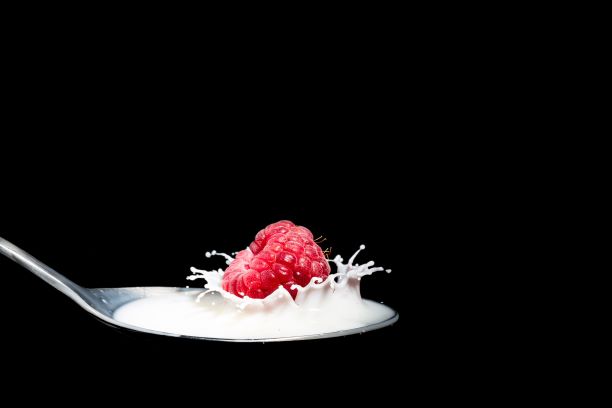Do you struggle to keep your stomach and gut healthy?
Do you suffer from Irritable Bowel syndrome?
Do you suffer from allergies? Gluten and dairy allergies?

Do you want to take a really fantastic probiotic that is cheap and easy to make?
Do you find it hard to find a really good dairy-free, gluten-free, vegan probiotic?
If all or some of these answers are Yes, then this is the article for you.
Hello I’m Jeff and I’m from Think Your Happy, this is a healthy, happy body article.
I think that there is a close relationship between the mind and the body.
I have found after many years of dietary allergies (gluten, dairy, eggs) that I have noticed a close relationship between the stomach and how the mind feels, Kefir is one of those foods that help keep my mind healthy and feeling balanced.
I prefer a more vegan-based diet because of health issues and ethical issue and because of a dairy allergy I take vegan, non-dairy Kefir.
How long have I been interested in Kefir?
I’ve been interested in Kefir for about 8 years. I saw it in a health food shop and was looking for something alive; a probiotic that helped my digestion and allergies.
Initially, I had to use goats milk Kefir because there wasn’t a non-dairy alternative. All that changed with the Vegan revolution.

What is Kefir?
Kefir is a cultured fermented ‘milk’ drink, traditionally made with goats milk and living Kefir ‘grains’ which are combinations of living good gut bacteria and yeast.
You can’t artificially manufacture a Kefir grain. These little grains only grow from other grains.
Their origin is a mystery.
They are grain-like colonies of yeast and lactic acid bacteria.
How long do they take to make the drink Kefir?
They get to work over 24 to 48 hours depending on the warmth of the environment they are living in. i.e. a warm kitchen, find a non-sunny spot.
The Science Bit: The microorganisms in the Kefir grains multiply and ferment the sugars and fats in the ‘milk’, turning it into Kefir.

What Happens Next?
Then the grains are removed from the liquid and can be used again and again. They can be stored in a little Kefir liquid in the fridge for a few weeks.
The Kefir can be stored in the fridge for a few weeks and matures with age. Personally speaking, I drink within 7-10 days.
The Kefir is the actual drink, but the Kefir grains are the starter culture that you use to produce the drink.
Research as to why Kefir is great….
In 2017 a Dr Michael Moseley did some research into Kefir, he was linked to the NHS in the UK (**5 see references at the end). He was doing this as part of a BBC2 TV show called: ‘Trust Me I’m a Doctor,’.
This experiment involved 30 volunteers, split into three groups, who drank either a probiotic drink, a fermented drink or munched on a prebiotic diet.

They were monitored over 4 weeks, the study revealed that Kefir was the most powerful of all probiotic foods available today for our gut’s health.
But Kefir has a few food friends who produce the same strains of Probiotics they are:
- Sauerkraut (preserved white cabbage),
- Kimchi (a fantastic traditional Korean fermented vegetables),
- of course Kefir and
- Kombucha (a fermented tea-based drink with a flat fungi that eats the sugar in the tea and gives you some great probiotics).
But some like Sauerkraut lack the decent levels of probiotics because they’ve been pasteurised – (heated up to kill any bacteria which kind of defeats the objective of the bacteria and goodness of the products).
The best way is to grow your own because:
- You control what goes in it.
- What organic ingredients you use.
- You use Less sugar
- You use fewer fats, salts and chemical nasties.

Warning: if you have an immune-suppressed illness it is best to consult your doctor before trying anything new.
But there are important things to be aware of if you’re planning to produce your own home-made fermented foods.
Just as home-made versions can contain greater numbers and varieties of beneficial bacteria, they can also contain harmful bacteria, particularly if they are not produced or stored correctly.
So if you do want to make your own you should follow a recipe, use the correct equipment and store your foods at the correct temperature.

What does Kefir tastes like?
It’s like a Yogurt type watery drink.
A bit tangy.
A bit fizzy.
Kefir leaves a slight tangy on your tongue.
It smells fresh.
It smells tangy.
(There is lots of ‘Tangy’ going on here).
The main active ingredient in the Kefir which produces the taste is something called Butyric Acid.
Butyric Acid is the same beneficial element which you can buy in health food shops, it is great for your immune system apparently, or at least it claims to be.
It is a food supplement.
And the same thing that creates the flavour in Parmesan cheese. Now do you get why it is so ‘tangy’.
What does Kefir look like?
It looks like a creamy coloured piece of Cauliflower or cottage cheese.
I think it looks like a light coloured brain, I call mine ‘Burt’ and have become quite fond of ‘Burt’.
I even talk to him a bit now.
The Kefir called Burt feeds of the sugars and fats in a Milk/milk substitute like almond milk or Oat Milk.
What are the 6 main benefits of drinking Kefir?

Jeff and the kefir
There are quite a few health claims for Kefir, but at the end of the day it is whether it makes you feel better and the effect it has on you and how you feel.
Ask yourself …does it make me feel happier?
If the answers yes, well, then use Kefir.
1. High in nutrients and probiotics, it is very beneficial for digestion and gut health.
Many people consider it to be healthier than yoghurt.
It contains Protein, Calcium, Phosphorous, B12, B2, Magnesium, Vit D. Depends on the type of milk substitute you use, determines the levels of vitamins.

It is the Probiotics we are interested in! The healthy gut bacteria.
2. Kefir Has Fantastic Antibacterial Properties
Certain probiotics in Kefir are believed to protect against infections.
This includes the probiotic Lactobacillus kefiri, which is unique to Kefir.
Studies demonstrate that this probiotic can inhibit the growth of various harmful bacteria, including Salmonella, Helicobacter pylori and E. coli (ref 1)
It has been found to reduce incidences of diarrhoea.
Something called ‘Kefiran’ which is a type of carbohydrate that is present in Kefir, additionally has antibacterial properties (Antimicrobial and healing activity of Kefir and kefiran extract (ref 2.).

Those clever scientists did some experiments using 70% Kefir gel, they found that it had a protective effect on the skin’s connective tissue and that after 7 days of treatment it enhanced wound healing!
Wow.
3. Kefir can Improve Your Bones’ Heath and reduce the risks of Osteoporosis:

There have been recent animal studies where they have linked Kefir to increased calcium absorption in bone cells.
This has lead to an improvement in overall bone density, this is fantastic news for Woman especially as they are more prone to Osteoporosis after the Menopause and in older age (ref 3):

4. Kefir Is A More Powerful Probiotic Than Yogurt!
Kefir grains contain up to 61 strains of bacteria and yeasts, this makes them an even richer source of probiotics than their food probiotic mates i.e. Yogurt.
5. The Probiotics in It Can Potentially Help With Various Different Digestive Problems
Probiotics such as Kefir can help restore you the balance of friendly bacteria in your stomach/gut
It is effective in treating a runny tummy….yes.. Diarrhoea.

Probiotics in Kefir and the very useful Vitamin K2 (present in Kefir) can support healthy digestion, help to break down foods and get the best out of the food you eat.
Kefir can also help you to sort out any problems with your tummy where a probiotic can help.
The benefits can also support IBS (Irritable Bowel Syndrome) and stomach ulcers caused by the naughty H. Pylori bacteria.
In a nutshell… Kefir can help us keep a healthy and happy stomach.
6. Kefir May Improve Any Allergy and Asthma Symptoms You May Have (Anti-inflammatory and anti-allergic effects of Kefir in a mouse asthma model (ref 4).
Kefir should never be a replacement for any prescribed medication, but the research done into the health benefits of Kefir for allergy sufferers like myself is fantastic.
This piece of research shows that Kefir had a significant effect on the lung lining and allergic reaction to allergies in rats given Kefir.
And whilst I don’t support the testing of animals, the research itself is very interesting from a scientific point of view.

Conclusion:
Kefir is easy to make at home, have a look at this video I made about making vegan Kefir at home.
The health benefits for your stomach and overall happiness and health are impressive.
If you can make healthy Kefir for a fraction of the price in a shop then why not try it at home and see how you feel about taking Kefir.
Let us know how you get on.
**Disclaimer: the information and research contained here are for information only about the possibilities of Kefir, if you have a serious health condition please, consult a Doctor.
Maybe you have other ideas about habits/foods/ways of life we can adopt for success, and feel happier? Please leave your suggestions below, we would love to hear them.

If you want to read more of my musings and articles have a look here on my blog on the Think Your Happy website.
If you want the key to unlocking those 3 fantastic success focussed meditations you can get them here.
So, what else can you do to change your life around?
What are you changing in your mind to create change within for success in your life?
Leave your comment below and let me know.
The Think community would love to hear your thoughts.
Take back control.
Create Your Own Success.
Jeff James.
Additional References:
1. https://www.ncbi.nlm.nih.gov/pmc/articles/PMC4273153/
2. https://www.ncbi.nlm.nih.gov/pubmed/15848295
3. https://www.ncbi.nlm.nih.gov/pubmed/25278298 called: Kefir improves bone mass and microarchitecture in an ovariectomized rat model of postmenopausal osteoporosis.
4. https://www.ncbi.nlm.nih.gov/pubmed/17869642
5. **What are fermented foods and which are best for improving our gut health?
Check Out Vegan Non-dairy Kefir grains here and make your own. I USED the 10g ones!
* This site is not a part of the Facebook™ Website or Facebook™ Inc. Additionally, this site is NOT endorsed by Facebook™ in any way. FACEBOOK is a trademark of Facebook Inc.








Recent Comments